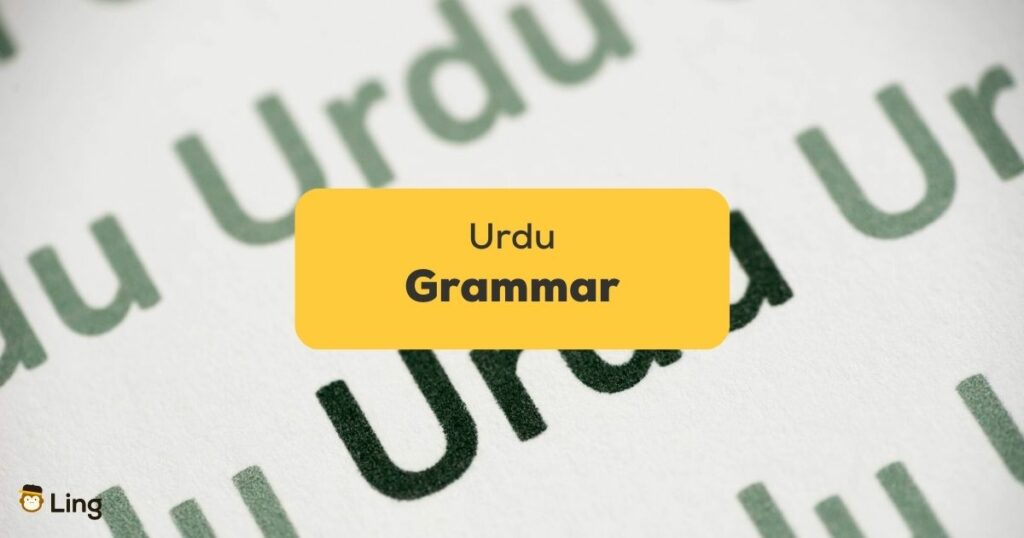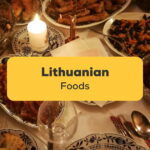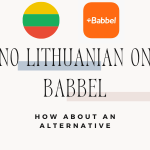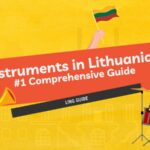If you are learning the Urdu language, then knowing basic vocab won’t be enough. To make sentences and communicate like a native speaker, you must learn Urdu grammar. Hence, this blog post will walk you through Urdu grammar in the simplest way possible. So let’s get started!
When it comes to the grammar of the Urdu language, the first thing you should know is that the Urdu language is highly inflected. This means that almost every word has a different form depending on its function in the sentence (subject, object, etc.). Though it may sound tricky, we’ll do our best to explain this with the rest of the lessons in this blog.
What Is The Urdu Grammar?
Urdu is the lingua franca, also known as, the official language of Pakistan. It is widely spoken in Pakistan, along with some regions of India. Urdu is considered a mixture of Turkish, Persian, and Arabic; thus, many words in Urdu are from these languages. Urdu is exceptionally close to Hindi, as both have been derived from Sanskrit and are also often called Hindustani.
Adjectives In Urdu Grammar
Adjectives are called sifat (صفت) in Urdu grammar. These describe the qualities of a noun or pronoun.
For example:
- Urdu: Mujhe ek khoobsurat billi chahiye (مجھے ایک خوبصورت بلی چاہیے۔)
- English: I want a beautiful cat.
The word khoobsurat (خوبصورت) means beautiful.
Let’s look at more adjectives in Urdu.
| English | Urdu | Romanized |
|---|---|---|
| Attractive | پر کشش | Pur Kashish |
| Bald | گنجی/گنجا | Ganji / Ganjaa |
| Beautiful | خوبصورت | Khubsoorat |
| Chubby | موٹی/موٹا | Mouti / Mota |
| Clean | صاف | Saaf |
| Dazzling | شاندار | Shandaar |
| Dirty | گندی/گندا | Gandi / Ganda |
| Elegant | خوبصورت | Khubsoorat |
| Like | پسند | Pasand |
| Fit | فٹ | Fit |
| Flabby | بے چین | Bey Chain |
| Glamorous | دلکش | Dilkash |
| Gorgeous | خوبصورت | Khubsoorat |
| Handsome | خوبصورت | Khubsoorat |
| Long | طویل | Taweel |
| Magnificent | شاندار | Shandaar |
| Pretty | پیارہ | Pyaara |
| Plain | سادہ | Saada |
| Plump | بولڈ | Bold |
| Quaint | عجیب | Ajeeb |
| Scruffy | گندی/گندا | Gandi / Ganda |
| Beautiful | حسین | Haseen |
| Short | مختصر | Mukhtasir |
| Skinny | پتلی/پتلا | Patli / Patla |
| Ugly | بدصورت | Badsoorat |
What Are Urdu Nouns?
Nouns are called Ism (اسم) in Urdu grammar. These can be the names of a person, place, or thing.
For example:
- Urdu: Mera naam Liya hai (میرا نام لیا ہے۔ )
- English: My name is Liya.
The word Liya (لیا ) is a name that is a noun.
Let’s look at more nouns in Urdu.
| English | Urdu | Romanized |
|---|---|---|
| Case | معاملہ | Maamla |
| Child | بچہ | Bacha |
| Company | کمپنی | Company |
| Day | دن | Din |
| Eye | آنکھ | Aankh |
| Fact | حقیقت | Haqeeqat |
| Government | حکومت | Hukoomat |
| Group | گروپ | Group |
| Hand | ہاتھ | Haath |
| Life | زندگی | Zindagi |
| Man | آدمی | Aadmi |
| Number | نمبر | Number |
| Part | حصہ | Hissa |
| Person | شخص | Shakhs |
| Place | جگہ | Jagah |
| Point | نقطہ | Nuqta |
| Problem | مسئلہ | Masla |
| Thing | چیز | Cheez |
| Time | وقت | Waqt |
| Way | راستہ | Rasta |
| Week | ہفتہ | Hafta |
| Woman | عورت | Aurat |
| Work | کام | Kaam |
| World | دنیا | Duniya |
| Year | سال | Saal |
What Are Urdu Pronouns?
The word for pronouns in Urdu is Ism-e-zameer (اسم ضمیر )
For example:
- Urdu: Aap merey saath asaktey hain (آپ میرے ساتھ آ سکتے ہیں۔)
- English: You can come with me.
Aap (آپ ) is a pronoun meaning you.
Let’s look at most pronouns in Urdu.
| English | Urdu | Romanized |
|---|---|---|
| Anyone | کوئی بھی | Koi Bhi |
| Anything | کچھ بھی | Kuch Bhi |
| Everyone | ہر کوئی | Har Koi |
| Everything | سب کچھ | Sab Kuch |
| He | وہ | Woh |
| Her | اس کا | Is Ka |
| Him | اسے | Usay |
| Himself | خود | Khud |
| I | میں | Mein |
| It | یہ | Yeh |
| Itself | خود | Khud |
| Me | میں | Mein |
| Myself | میں خود | Mein Khud |
| Nothing | کچھ نہیں | Kuch Nahi |
| One | ایک | Aik |
| She | وہ | Woh |
| Someone | کسی | Kisi |
| Something | کچھ | Kuch |
| Them | انہیں | Inhen |
| Themselves | خود | Khud |
| They | وہ | Woh |
| Us | ہمیں | Humnay |
| We | ہم | Hum |
| Who | کون | Kon |
| You | تم | Tum |
Adverbs In Urdu
The word for adverbs in Urdu is Mutaliq fail (متعلق فعل). Adverbs talk about the quality of verbs that we will talk about next.
For example:
- Urdu: jaldi karo hamain der ho rahi hai (جلدی کرو ہمیں دیر ہو رہی ہے۔)
- English: Hurry up, we are getting late.
Jaldi kero (جلدی کرو ) is an adverb meaning hurry up.
Check out the rest of these adverbs in Urdu to familiarize yourself with the Urdu adverbs vocabulary.
| English | Urdu | Romanized |
|---|---|---|
| Annually | سالانہ | Salana |
| Briefly | مختصر طور پر | Mukhtasir Tor Par |
| Carefully | احتیاط سے | Ahthyat Se |
| Daily | روزانہ | Rozana |
| Exactly | بالکل | Bilkul |
| Fairly | منصفانہ | Munsifana |
| Greatly | بہت | Bohat |
| Immediately | فوری طور پر | Fori Tor Par |
| Jealously | حسد سے | Hasad Se |
| Keenly | دلچسپی سے | Dilchaspi Se |
| Lively | جاندار | Jandaar |
| Mysteriously | پراسرار طور پر | Pur Asraar Tor Par |
| Naturally | قدرتی طور پر | Qudrati Tor Par |
| Often | اکثر | Aksar |
| Politely | شائستگی سے | Shaistagi Se |
| Quickly | جلدی سے | Jaldi Se |
| Regularly | باقاعدگی سے | Baqaidagi Se |
| Suddenly | اچانک | Achanak |
| Thankfully | شکر ہے | Shukar Hai |
| Usefully | مفید طور پر | Mufeed Tor Par |
| Voluntarily | رضاکارانہ طور پر | Raza Karana Tor Par |
| Wrongly | غلط طریقے سے | Ghalat Tareeqay Se |
Example Of Urdu Verbs
The word for Verb in Urdu is Fael (فعل ). It describes the action done by a noun/pronoun.
For example:
- Urdu: wo bathroom chala gaya (وہ باتھ روم چلا گیا۔ )
- English: He went to the bathroom.
Chala gaya (چلا گیا) is a verb meaning went.
Here is a list of Urdu verbs for you.
| English | Urdu | Romanized |
|---|---|---|
| Answer | جواب دینا | Jawab Dena |
| Approve | منظور کرنا | Manzoor Karna |
| Arrange | بندوبست کرنا | Bandobast Karna |
| Break | توڑنا | Torna |
| Build | تعمیرکرنا | Taa-Meer Karna |
| Cough | کھانسی | Khansi |
| Create | بنانا | Banana |
| Cry | رونا | Rona |
| Dance | رقص کرنا | Raqs Karna |
| Describe | بیان کرنا | Bayan Karna |
| Edit | ترمیم کرنا | Tarmeem Karna |
| Enter | داخل کرنا | Daakhil Karna |
| Imitate | نقل کرنا | Naqal Karna |
| Invent | ایجاد کرنا | Ijaad Karna |
| Jump | چھلانگ لگانا | Chhalang Lagana |
| Laugh | ہنسنا | Hansna |
| Paint | پینٹ کرنا | Paint Karna |
| Sing | گانا | Gana |
| Sleep | سونا | Sona |
| Sneeze | چھینکنا | Chhenknaa |
| Solve | حل کرنا | Hal Karna |
| Study | مطالعہ کرنا | Mutalea Karna |
| Teach | سکھانا | Sikhana |
| Touch | چھونا | Chouna |
| Turn | موڑنا | Modna |
| Walk | چلنا | Chalna |
| Whistle | سیٹی بجانا | Seeti Bajana |
| Win | جیتنا | Jeetna |
| Write | لکھنا | Likhna |
Conjunctions In Urdu
Conjunctions are called haroof e ataf (حروف عطف) in Urdu grammar. These connect different phrases and words in the Urdu language.
For example:
- Urdu: mujhe aik bili aur aik kutta chahiye (مجھے ایک بلی اور ایک کتا چاہیے۔)
- English: I need a cat and a dog.
The word (aur) اور means and.
Let’s look at more conjunctions in Urdu.
| English | Urdu | Romanized |
|---|---|---|
| After | کے بعد | Ke Baad |
| Although | اگرچہ | Agarcha |
| And | اور | Aur |
| As | کے طور پر | Ke Tor Par |
| Because | کیونکہ | Kyunkay |
| Before | پہلے | Pehlay |
| But | لیکن | Lekin |
| Except | سوائے | Siwaye |
| If | اگر | Agar |
| Like | پسند | Pasand |
| Nor | نہ ہی | Nah Hi |
| Now | ابھی | Abhi |
| Once | ایک بار | Aik Baar |
| Or | یا | Ya |
| Since | جب سے | Jab Se |
| So | تو | To |
| Than | مقابلے | Muqablay |
| That | کہ | Ke |
| Though | اگرچہ | Agarchay |
| Unless | جب تک | Jab Tak |
| Until | جب تک | Jab Tak |
| When | کب | Kab |
| Where | کہاں | Kahan |
| Whether | چاہے | Chahay |
| While | جبکہ | Jabkay |
Want To Know More Than Urdu Grammar? Learn With Ling!
If you only speak your mother tongue, you need to learn a new language, as knowing a second language makes your brain sharper, and you feel more connected to other cultures.
If you want to learn the Urdu language, practice on the Ling app for fifteen minutes daily. You can learn the official languages of ten-plus countries. Acquire more vocabulary in the Urdu language easily with Ling. Download the Ling app from the Google Play Store or App Store and sign up to start learning Urdu! Happy learning!


































































